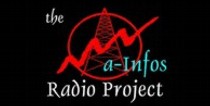 By David Sugar
By David Sugar
While it is funny at first to hear a nation filled with squatters singing of their “native land”, the humor wore off a long time ago. One really has to have a good idea of what is happening in the real Kanienkehaka, in indigenous Canada, and particularly the Haudenosaune lands, to fully comprehend what is today the British dominion of Canada.
First it is essential to consider that while there is a “government”, it is essentially the colonial caretaker of what is claimed to be the Queen’s “property”. Recent colonial administrations, such as the present Harper government, are actively trying to sell the land and resources, including so called “human resources”, of a privately instituted and legally registered holding company, “Canada Inc”, to other private companies. Imagine living by a lake and finding one day you, your house, and the lake you fish at are now the private property of a corporation, a modern form of direct slavery. The one inconvenient problem with all this is that the lands of British Canada is actually held under what is called “Aboriginal Title”, and hence the original inhabitants, and not, as claimed, by the crown.



















You must be logged in to post a comment.